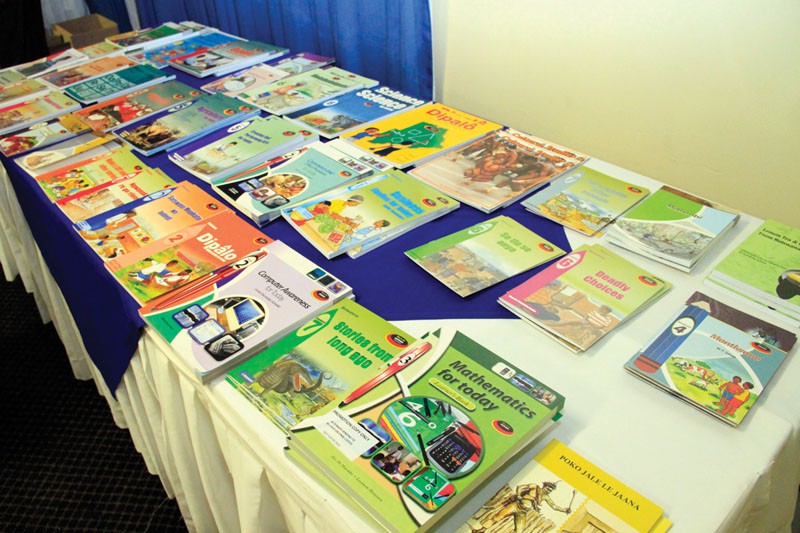Primary schools to get P50m worth of textbooks
Baboki Kayawe | Friday November 20, 2015 15:48


Last year the education ministry’s tender number: PR6/7/9-1 for the supply of textbooks in these schools was approved, but later waived apparently without the publishers’ knowledge.
The Department of Basic Education (DBE) had requested for authority to award the tender to about six publishers.
One publisher who preferred anonymity earlier this year said: “Towards end of last year, regional education directors communicated with us to explain that they were still counting books from all the schools to figure out the specific number to order from us.
Core readers and supplementary books have not been ordered for four years”.
However, about two weeks ago, the Public Procurement and Asset Disposal Board (PPADB) adjudication board approved the textbooks supply tender following the DBE’s procurement recommendation beginning of this month.
The tender has been awarded to six publishers, namely Collegium Education Publishers at P29 million, Pearson Education Botswana at P7.8 million, Botsalano Press at P5.9 million, Medi Publishing at P981,000 and Macmillan Botswana Publishing Company at P6.6 million.
The tender approval follows a national outcry of textbook shortages across all levels that heightened early this year.
Subsequently a national public schools textbook audit was launched this February; an exercise meant to determine the degree of the demand and supply mismatch.
Ministry of Education and Skills Development (MoESD) spokesperson, Silas Sehularo revealed yesterday that the ‘almost yearlong’ audit discovered that reading materials were unevenly distributed.
“What we did was to collect all textbooks and send them to a central point, being the 10 regional education offices in this case and they were counted.
It was discovered that there wasn’t a severe scarcity of textbooks as initially thought, but distribution was uneven as some were oversupplied,” he said.
However, he could not say which areas had an oversupply and which had shortages as he simply said, “it differs from one subject to another”.
Redistribution of textbooks was then carried out according to Sehularo, and the ongoing procurement exercise is meant to augment “shortages informed by the audit”.
He added that at primary level the shortfall is in core subjects, while especially for standard one to two the deficit is in Mathematics textbooks, whereas for standards 3-7 it covers Maths, English and Agriculture prescribed books.
At the height of the crisis in February, it was reported junior secondary schools were mostly affected by the shortage following the introduction of the new Junior Certificate Examinations curriculum in 2010.
However, Sehularo said primary schools are being prioritised though all levels are in “urgent need”.
He refuted that the curriculum change led to an acute shortage of textbooks at JCE as “not all books were discarded at the time”.
“Nonetheless, textbooks procurement is an ongoing exercise and with availability of funds, the ministry will supply more books at secondary school level,” Sehularo said.
However, some stakeholders objected to the manner in which the national textbook audit was undertaken. At the time, Botswana Sectors of Educators Trade Union (BOSETU) labelled the exercise ‘flawed’.
BOSETU secretary general, Tobokani Rari said, “They looked at the number of prescribed reading material schools had and in instances where a subject has more than one recommended textbooks, the other book(s) were taken to a different school”.
He said the redistribution route the ministry took had rather bred a scenario in which schools had non-complementary reading materials, emphasising on the transfer of subject core textbooks to another school in case a subject had more than one prescribed book.
“The implication is that learners are going to use different textbooks and it is quite surprising because the reason why certain subjects have more than one prescribed textbooks is to supplement the other so as to meet the objectives of the syllabi,” he said at the time of the audit.
Sehularo, however, maintained that was never the case.
He said: “The redistribution never transferred any subject textbooks from one school to the other. That would be countering the purpose of the audit”.
